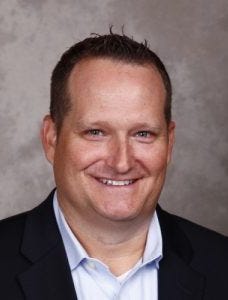Consolidation Continues: Telarus Buys TCG in Major Distribution Team-UpConsolidation Continues: Telarus Buys TCG in Major Distribution Team-Up
"They had to scrap and fight and claw their way to the top," Telarus CEO Adam Edwards told Channel Futures.

Telarus has acquired TCG in a move that expands its reach geographically and establishes the firm as one of the leading players in a technology distribution market experiencing rapid consolidation.
Utah-based Telarus announced the acquisition of Florida-based TCG on Tuesday. Telarus stated in its announcement that the combined company will be the largest technology solutions brokerage (also known as a technology services distributor) in the channel. That’s based on new monthly bookings and revenue. But Telarus CEO Adam Edwards said his focused more on scale than size.

Telarus’ Adam Edwards
“I think sometimes people confuse scale with just pure size. And that’s not the case here,” Edwards told Channel Futures. “What scale really means is that with size you get additional benefits, including cost efficiencies and value creation for partners.”
Find out what partners of both companies think of the deal. |
The deal strengthens Telarus’ footprint on the East Coast and gives it access to a TCG’s loyal sales partner base. For TCG, joining forces with Telarus gives TCG agents a deeper set of resources, including tools like Telarus’ recently launched cybersecurity assessment. It will also bolster TCG’s engineering chops. Moreover, TCG president Dan Pirigyi said his team found a cultural fit with Telarus.
“As we looked around the landscape, we … gravitated to these guys,” said Pirigyi, who will serve as senior vice president of strategic partners. “We’ve admired them from afar for some time.”

Telarus’ Dan Pirigyi
This is not the first acquisition for Telarus. Four years ago it acquired fellow Utah firm CarrierSales. In late 2020 Telarus accepted an investment from Columbia Capital, and it has used those funds to buy Chorus Communications and Comtel Communications.
Integration
Pirigyi said all TCG employees will make the transition to Telarus. He said the combined company is still determining the organizational structure of its leadership team.
Edwards said Telarus will need to balance between methodical and speedy as it integrates TCG.
“What we learned from our past history is, you want to integrate quickly, but don’t break things. And that means partners come first. You want to make sure they’re getting the same consistent support they’ve always gotten. You want to make sure their expectations are being met and that everything is a positive. Nobody likes change when things are going well,” Edwards said.
He said partners initially will continue to interact with Telarus and TCG through the same access points as before.
“We’re not going to mess with any of that until we study it out and measure twice. And then we start integrating systems, bringing everybody on board with access tools and resources … as quickly as we can,” he said.
But commissions integration, he said, will take place at the very end of the process.
“Partners would rather have two accurate checks than one inaccurate check. So we run systems in parallel for a good number of months to make sure we don’t miss anything there. And then we bring those together last,” he said.
Edwards said Telarus ran the same playbook when it acquired CarrierSales. It held off on integrating commissions systems until the last step, he said.
“Partners don’t care if you integrate that in one month, three months, six months or nine months,” Edwards said. “What they care about is if something is miscalculated or if something is missing. That’s the cardinal sin. That’s why you run them in parallel for a while.”
Edwards and Pirigyi said Telarus and TCG both use RPM for commissions. Similarly, the previous companies Telarus acquired (CarrierSales, Chorus and Comtel) used RPM.
An Underdog Tale
Edwards said that TCG and Telarus’ bases of sales partners don’t overlap much. That’s due in part to the efforts TCG has made in recruiting partners in smaller, overlooked markets.
“It was our ground-and-pound [approach] in secondary and tertiary markets,” Pirigyi told Channel Futures. “We’ve been successful in finding people who aren’t in our industry and educating them that they can make a residual commission and a bonus by simply joining us.”
That unique partner base came in part because …
… TCG had to battle to establish its own lane in the industry.
“When they started out, nobody would talk to them. They weren’t pulling in the biggest commissions. They weren’t pulling in all the goodies from the suppliers. Suppliers weren’t referring partners to them. They had to scrap and fight and claw their way to the top,” Edwards said.
Edwards noted that 32-year-old TCG has seen a meteoric rise since Pirigyi joined the company in 2012.
“Most people don’t know, but we looked at a lot of competitors, and I believe they’re the fastest-growing TSB out there in terms of percentage growth, which was impressive to us,” said Edwards, who added that he “saw Telarus in TCG” when he and his team examined the company. “It says a lot about them and how they’ve gone to market.”
Many sales agencies have grown up alongside TCG over the years and are looking for the next step. Pirigyi said Telarus will help those agents continue their growth.
“We’re very aware of our partner ecosystem, and we want to give them the tools that they need to succeed. Building those tools on our own would have taken – quite frankly – too long. We were in the process of doing some things, but this just gets us to that next level immediately. So it’s a perfect combination,” Pirigyi said.
The companies overlap in terms of their supplier bases. For example, they are both No. 1 (Telarus) and No. 3 (TCG) with the two largest cablecos in the channel.
“I think the carriers will be happy with that. And we’re not looking to take our foot off the gas pedal,” Pirigyi said. “We’re looking to uncover more partners and produce more business. We’re not slowing down. This is like a freight train, and we’re rolling down the tracks.”
End Goal?
What sort of revenue number is Telarus seeking to attain? For example, executives from rival Avant have publicly stated that they want to build a $1 billion company.
Of more importance to Edwards is focusing on how many Telarus partners have exceeded $1 million booked and the number of partners driving $100,000 in recurring revenue. Moreover, he said the TCG leadership team shares a similar emphasis on partner success.
“We do believe we will book more and have more revenue. But if that doesn’t translate into value for partners, then we’re in real trouble,” Edwards said.
Industry Consolidation
Consolidation is shaping the legacy telecommunications distribution channel into an elite handful of massive players. A month ago, Avant announced the acquisition of PlanetOne in a deal that solidified the combined company as a heavyweight in the space. AppDirect-owned AppSmart has purchased multiple regional companies over the years, including MicroCorp and Telegration.
These companies join Telarus as rivals to Intelisys, whose acquisition by distributor ScanSource six years ago helped set the stage for industry consolidation.
In the meantime, a few firms that dub themselves as national distributors remain independently held. Specifically, executives from Chicago-based TBI have vowed to remain the last one standing. California-based Sandler Partners, which bought X4 in 2016, and Ohio-based Jenne have not been purchased.
Want to contact the author directly about this story? Have ideas for a follow-up article? Email James Anderson or connect with him on LinkedIn. |
About the Author
You May Also Like


